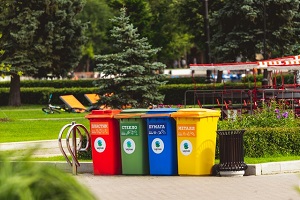Last Wednesday, Illinois-based waste management company Stericycle Inc. agreed to pay more than $84 million to settle foreign bribery charges brought in parallel by the Department of Justice (DOJ), the Securities and Exchange Commission (SEC), and authorities in Brazil.
The charges centered around payments Stericycle made to foreign officials in Brazil, Mexico, and Argentina to secure government contracts in those countries. These types of payments violate the Foreign Corrupt Practices Act (FCPA), which generally precludes bribing foreign government officials to obtain or retain business or secure other types of business favors or advantages.
According to court documents and company admissions, Stericycle paid roughly $10.5 million in bribes to foreign officials in the three countries. Stericycle calculated the cash payments as a percentage of the underlying contract payments owed to its government customers.
The scheme used sham vendors and false invoices to conceal the bribes. Stericycle also failed to have sufficient internal accounting controls and compliance checks in place to prevent this kind of misconduct. The scheme earned the company more than $20 million.
Stericycle’s overall payout included a $52.5 million criminal payment to the DOJ, roughly $28 million in disgorgement to the SEC, and roughly $9.3 million in payments to Brazilian authorities. In announcing the settlement, the government highlighted its commitment “to combating corruption and protecting the international marketplace,” stressing that “[c]ompanies that bribe foreign officials for business advantage will be held accountable.”
The FCPA is a high priority enforcement area for the DOJ and SEC with the agencies hauling in numerous eight, nine, and even ten-digit settlements every year. The government recovered $650 million from the top four FCPA recoveries from last year alone. And in 2020, the Top-10 FCPA recoveries brought in more than $8 billion for the government.
The statute covers actual bribes or offers to bribe through any form of consideration, including gifts, meals, travel, and entertainment. It also covers virtually any type of business advantage being sought, including securing favorable tax treatment, avoiding customs duties, foreclosing competition, avoiding licensing requirements, or securing favorable treatment in connection with regulations, lawsuits, or enforcement actions.
It is not clear whether a whistleblower first brought Stericycle’s misconduct to the government’s attention or in any way assisted with the government’s investigation. However, whistleblowers are often involved in reporting FCPA violations, especially those individuals with a window into the company’s foreign accounting practices.
Under the False Claims Act, successful whistleblowers can receive between 15-30% of the DOJ’s recovery. Under the SEC Whistleblower Program, successful whistleblowers can receive between 10-30% of the SEC’s recovery (and potentially related government recoveries too).
If you have information relating to what you think might be a potential FCPA violation, feel free to contact us to speak to a member of our experienced whistleblower lawyer team.
Read More
Foreign Corrupt Practices Act (FCPA)
Financial and Investment Fraud
International Whistleblowers
Contact Us Confidentially
Read Stericycle Pays More than $84 Million to Settle FCPA Charges at constantinecannon.com






Leave A Comment